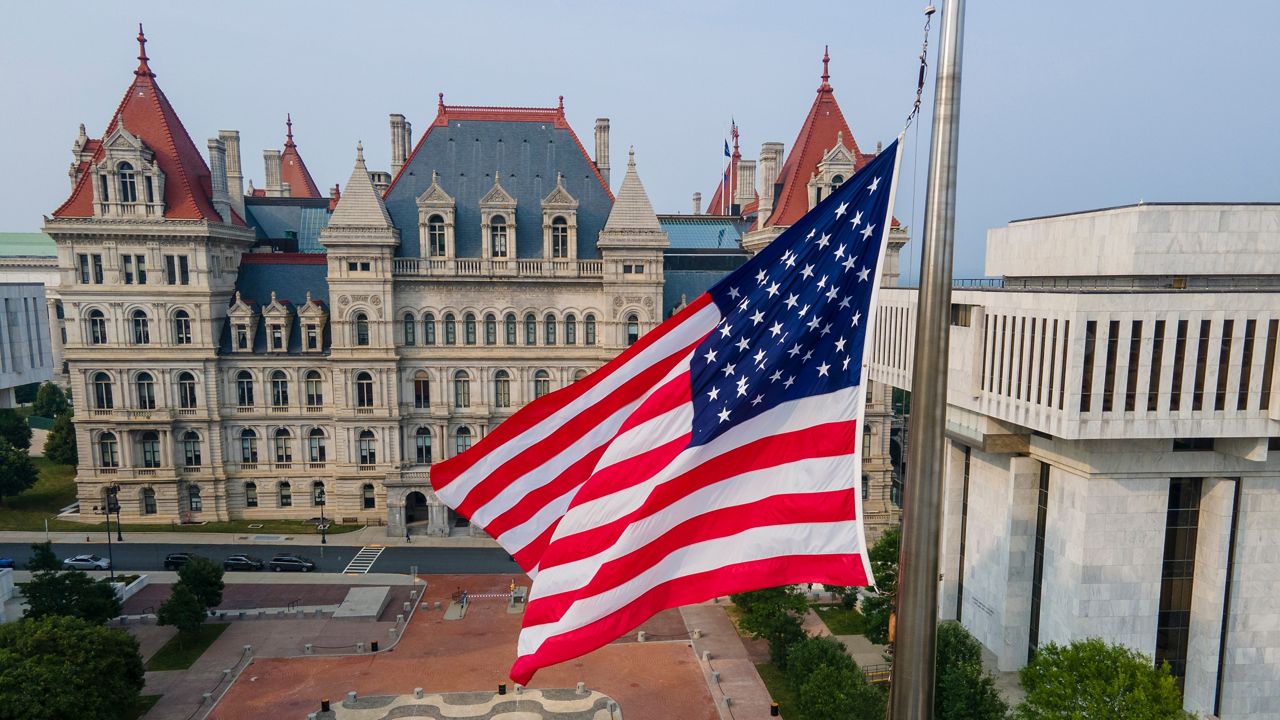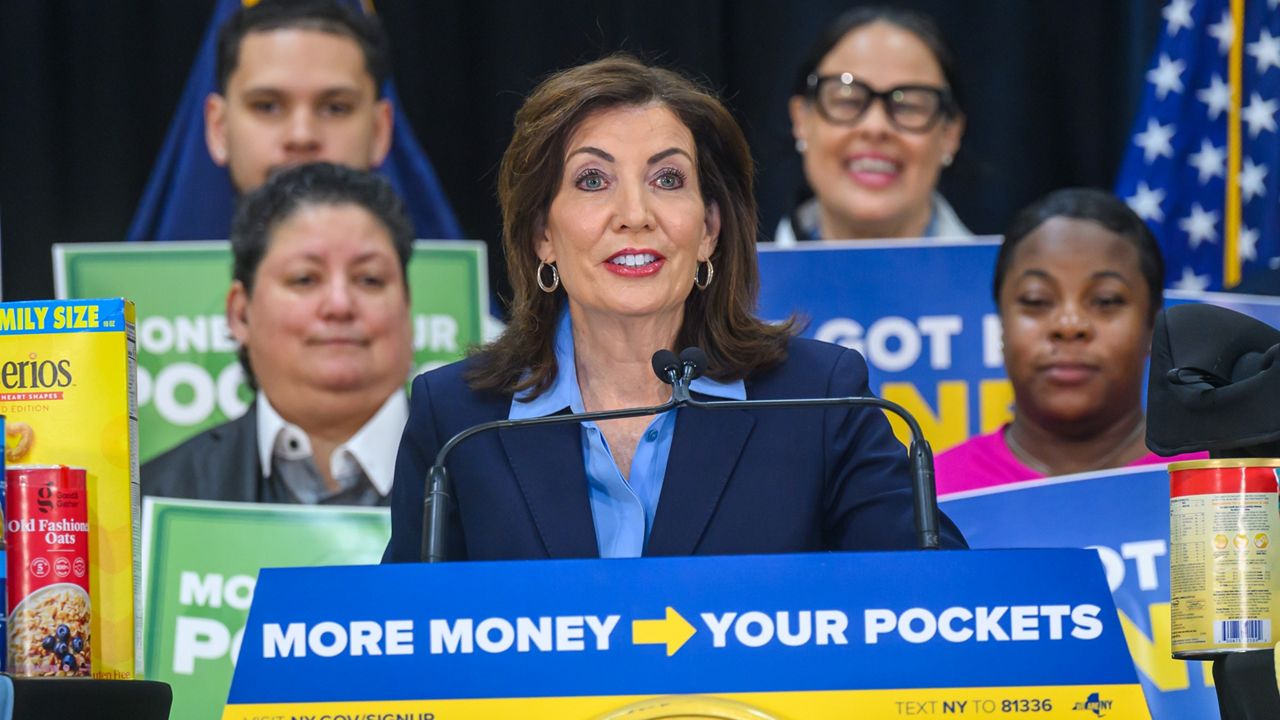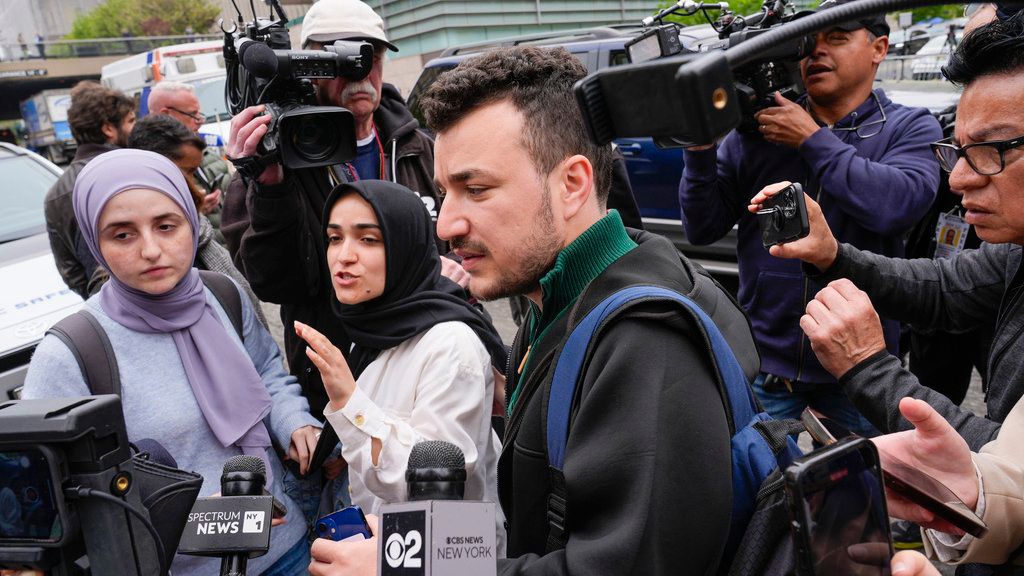While there has been push-back against migrants in many parts of the city, it’s often a different story in Harlem.
Dozens of Black migrants have made their way to the area – and they’re receiving a welcome from some local officials.
“When people are seeking, where can I go to get help, especially West Africans, they’re going to come to Harlem. They’re going to come to a place where, when they look around, the folks look like them,” said City Councilman Yusef Salaam at an Eid celebration in Harlem on Saturday.
Harlem has become a haven for many new arrivals looking for community and help.
On Saturday, they were welcomed with open arms at a celebration to mark the end of Ramadan.
“As it was done during the period of Ramadan and even before, that they know that they are included in our fellowship, they are fed, they are welcome to eat with us and break bread with us and make prayer with us,” State Senator Cordell Cleare said.
Cleare is part of a network of officials, nonprofits and mosques that have rallied around Black migrants.
She said they’ve stepped in where City Hall has left gaps in services related to shelter, food, and legal help.
“We participated with many community partners in getting them coats, appropriate clothing, stuff to wear outside, because many of them are doing delivery work,” Cleare said. “We’re trying to be helpful as much as we can with resources relating to immigration law and related to services that might be available for them.”
As of late March, the top African countries of origin for those migrants in the city’s care are Guinea, Senegal and Mauritania.
One organization in Harlem helping with the influx of migrants is African Communities Together.
“When people come to us, they often tell us that they’ve tried other places that didn’t speak their language or they didn’t understand how to get help,” Amaha Kassa, executive director of the organization based in Harlem, said.
Kassa said a major challenge for the organization has been finding long-term housing.
Many African migrants are single adults; However, the city has put limits on their stays to 30 or 60 days.
“We’ve been able to connect people with some limited short-term stays but that has gone quickly,” Kassa said. “Really, nothing we or other nonprofits are going to be able to do is going to make up for what the city can do in terms of housing tens of thousands of people.”
The organization also helps migrants access health care and municipal ID’s known as IDNYC, which can help them open a bank account.
City officials on Tuesday acknowledged they have been slow to get translators for some of the native languages spoken by Black migrants.
Critics of the city’s response to the migrant crisis have raised concerns about discrimination.
“In America, we've always experienced what they call the complexion for rejection. If you look like this. But, if you look like this, then it's the complexion for acceptance,” Salaam said.
More than 189,000 migrants have come to the city, with more than 64,000 in the city’s care right now.




_PKG_Harlem_Black_migrants_CLEAN_129575674_1008?wid=320&hei=180&$wide-bg$)



_DNT_Columbia_Protest_CLEAN_FOR_APPROVAL)
